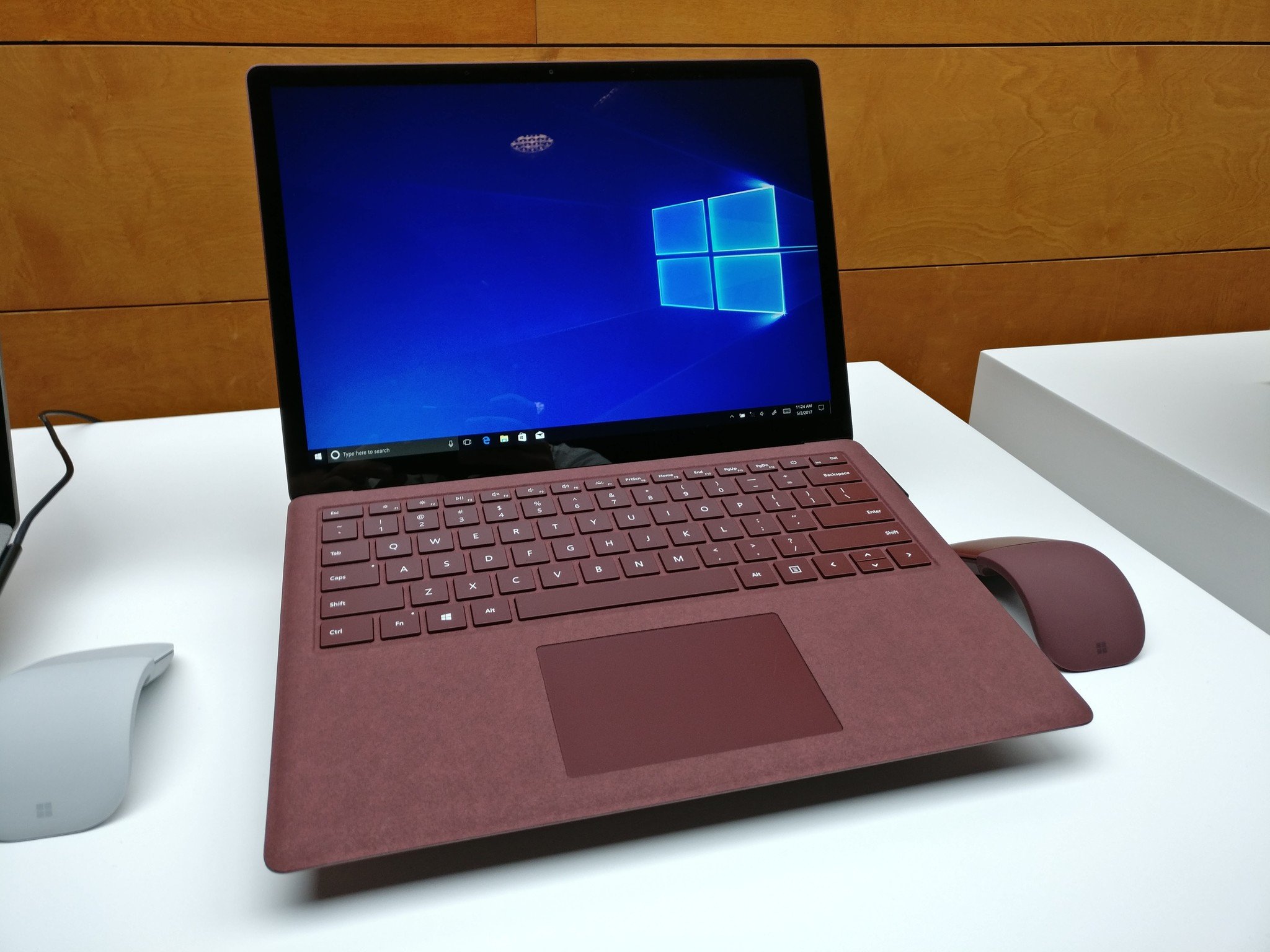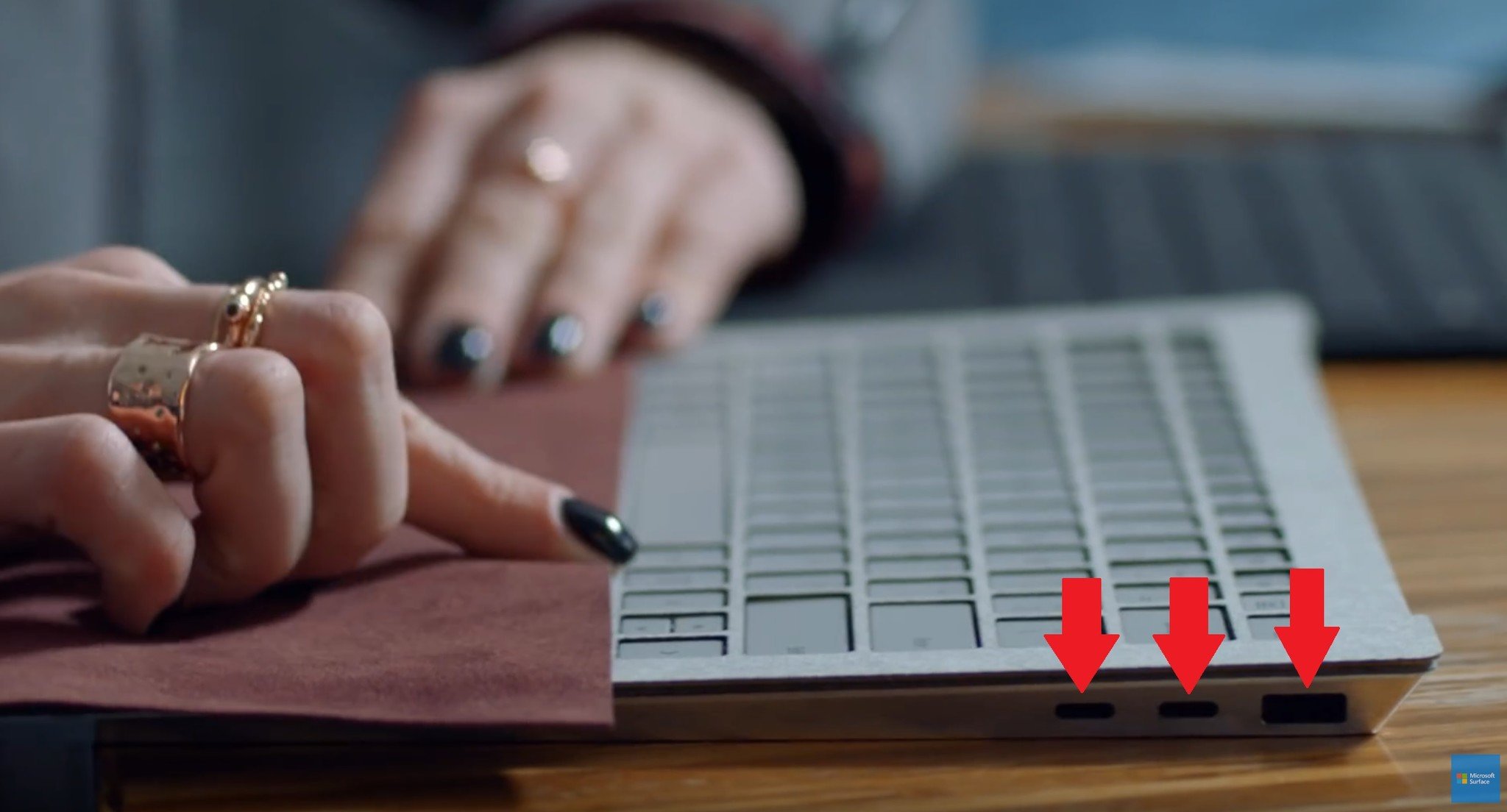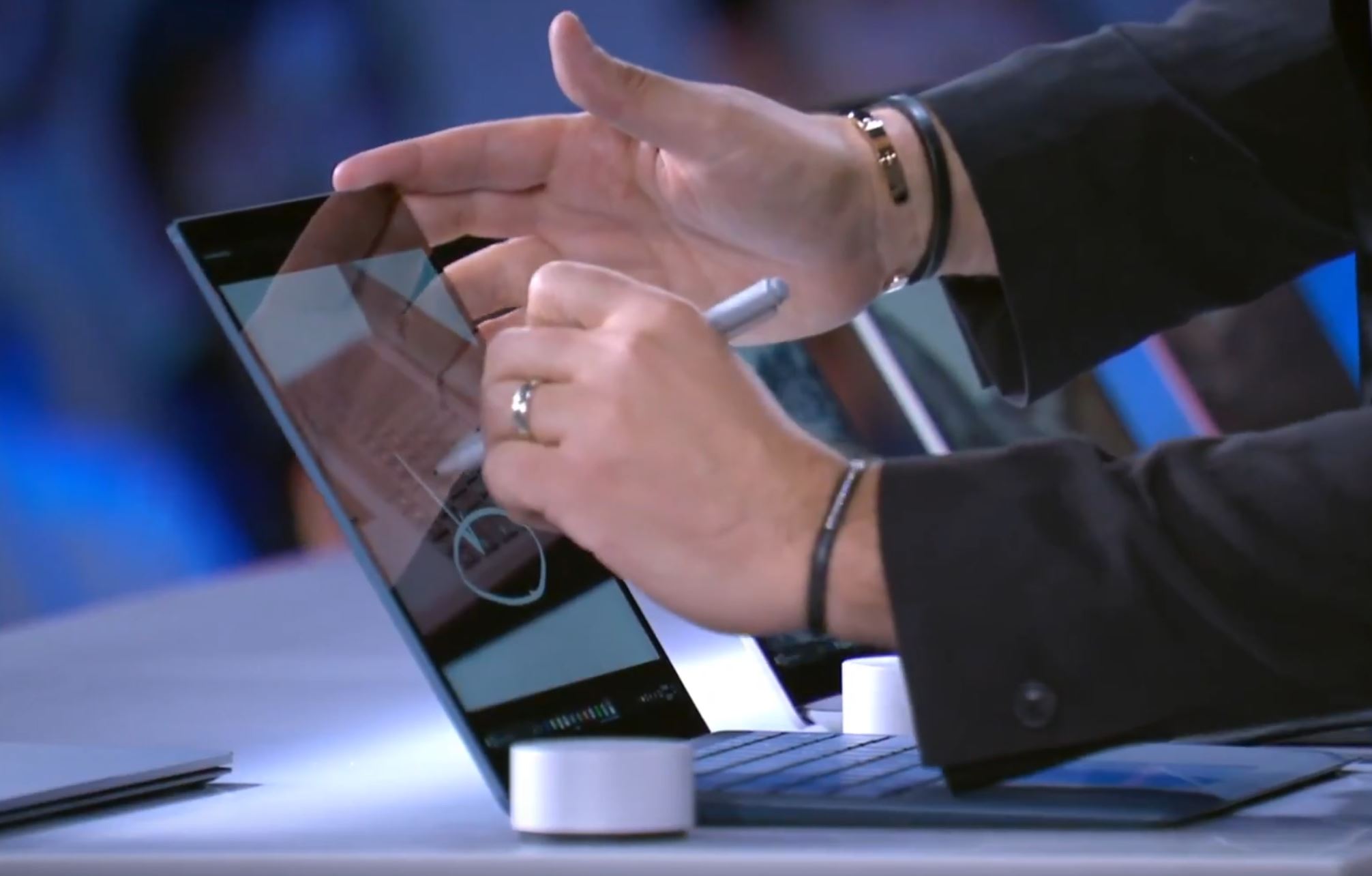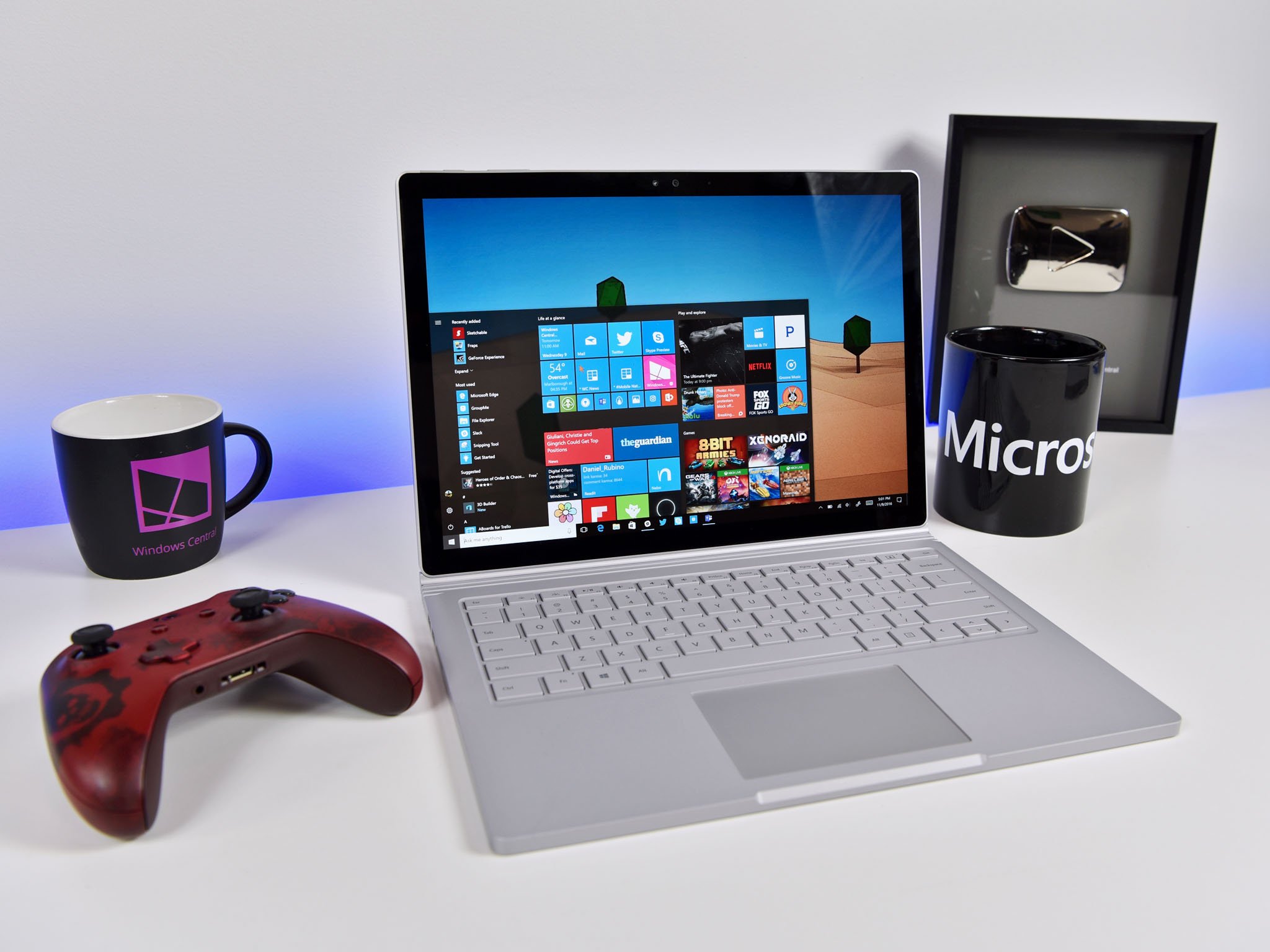5 things you will NOT like about Microsoft's Surface Laptop
We're super excited about Microsoft's Surface Laptop. But let's get real: The company got a lot right (and wrong) with the new PC. Here, we focus on the wrong.

All the latest news, reviews, and guides for Windows and Xbox diehards.
You are now subscribed
Your newsletter sign-up was successful
With the dust settling after Microsoft's May 2 event, I want to focus on the Surface Laptop.
Regarding its overall "classic" design, Surface Laptop is a fantastic product. With its solid state drive (SSD) uniquely integrated directly into the motherboard, hidden speakers below the keys, and the "thinnest touch display in any laptop," there's a lot to be excited about.
There are, however, a few glaring misses that leave me bewildered.
1. No USB Type-C
Microsoft's Head of Industrial design for Devices Ralf Groene told us that USB Type-A is used by more people today than the more modern Type-C.
That may be true, but we know from Microsoft's own video on design that the company was experimenting with a two USB Type-C and one Type-A configuration.

Compromises are often necessary, but who wouldn't have preferred that more future-proof iteration? I sure would have.
Putting aside the USB Type-C request, having a single USB Type-A port is a bit rough for a laptop (even if it's just mirroring the Surface Pro 4). And the lack of an SD-card reader but the presence of a Mini DisplayPort just seems ... strange.
All the latest news, reviews, and guides for Windows and Xbox diehards.
2. Surface Pen is not a good fit
For the first time, a major Surface device won't ship with a Surface Pen. That's fine, too, because the Surface Laptop is not at all pen-centric. In fact, it looks downright odd to use with the Pen because the display does not articulate very far.

Not everyone needs a pen or a device designed to be used with one. I don't. However, it bucks the trend of Surface PCs that put the pen front and center.
Considering the Microsoft Creators Update for Windows 10 and the heavy focus on inking, this seems like a change in messaging.
3. Non-convertible design bucks the market
In another sign of mixed-messaging, Microsoft's Surface Laptop is not a convertible. After spending the last few years inventing and preaching about the 2-in-1 category, it seems odd for the company to back away from the form factor.
Microsoft has Surface Book and Surface Pro to make up for Surface Laptop, but it seems like the younger audience the company is targeting is more interested in convertibles than traditional Ultrabooks.
4. 4GB of RAM is not enough
The entry-level Surface Laptop starts at $999 and comes with an Intel Core i5 processor, 128GB of storage, and just 4GB of RAM. To be fair, the Surface Pro 4 with comparable specifications along with the extra $129 keyboard cost $979.
Is 4GB of RAM enough? Microsoft seems to think so, and it lets the company hit a lower pricing tier. But we're not so sure.
5. Surface Laptop is not a 'category creator'
I'm honestly still scratching my head as to why Microsoft is even releasing the Surface Laptop.
It's a beautiful machine, and I'm glad they did make it. (Yes, I want one.) But it breaks a trend of "category creation." Surface Pro, Surface Book, and Surface Studio were all category-defining devices – PCs we had not seen before, or that hadn't been executed as well.
Microsoft's hardware partners such as Dell, HP, Lenovo, and even Razer have all been contributing amazing new laptops to the market. In fact, those companies have released some of the best laptops consumers have ever seen.

Is the Surface Laptop a vote of "no confidence" in those devices? Definitely not, but it is a slap in the face to those companies.
Microsoft says Surface Laptop fills in a gap in its Surface lineup. That makes sense, it still seems out of place.
I'm sure the same team could make a drool-inducing Surface Toaster and Surface Pager, too, but that doesn't mean the market needs those things.
Why all of these complaints may not matter
Not every PC or Surface created fits your personal needs. Maybe you want a laptop with USB Type-C, maybe you need a convertible, or you want a larger display or quad-core processor.
The Surface Laptop is still unlike Apple's highly-criticized MacBook lineup for a simple reason: options. Apple makes macOS and is its only hardware manufacturer. When Apple misses on laptop design or a feature set, its audience has no alternative recourse. Microsoft is adding to the PC mix with Surface Laptop, not creating the world's only PC Ultrabook. If Surface Laptop were the only Ultrabook option for Windows users, you would see much more outrage over the things listed here.
The fact is, PC users have an overabundance of hardware choices.

Is the Surface Laptop too expensive? Not enough ports for you? If so, grab an HP Spectre x360 4K, Huawei MateBook, or a Dell XPS 13. If you want to game on premium hardware, just grab a Razer Blade.
Microsoft's design is not above criticism, but Windows users have far less to worry about if the company has a misses its mark with a new Surface device. There are better and even cheaper alternatives readily available.
Best Surface Pro 4 Alternatives
A few years ago, if you wanted a premium PC experience Surface was about the only option. That is no longer the case, which is a massive victory for consumers.
For my needs, Surface Laptop is the kind of device I can enjoy using and get my job done, too. In the end, that is what this comes down to: You should pick the laptop for your personal needs.
It's OK if the Surface Laptop does not meet your expectations. You have plenty of other options. That is likely a big reason why you're a Windows PC user, after all.

Daniel Rubino is the Editor-in-Chief of Windows Central. He is also the head reviewer, podcast co-host, and lead analyst. He has been covering Microsoft since 2007, when this site was called WMExperts (and later Windows Phone Central). His interests include Windows, laptops, next-gen computing, and wearable tech. He has reviewed laptops for over 10 years and is particularly fond of Qualcomm processors, new form factors, and thin-and-light PCs. Before all this tech stuff, he worked on a Ph.D. in linguistics studying brain and syntax, performed polysomnographs in NYC, and was a motion-picture operator for 17 years.
